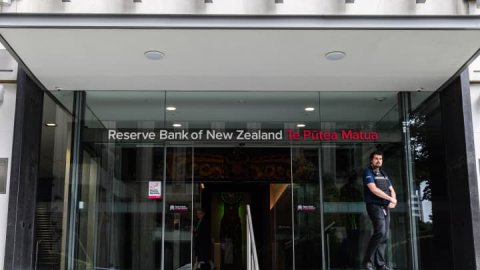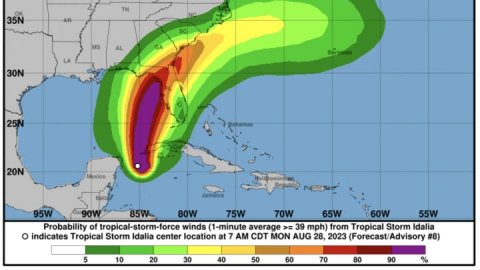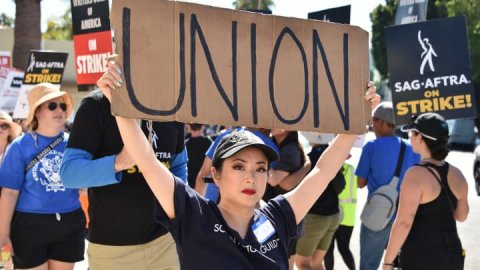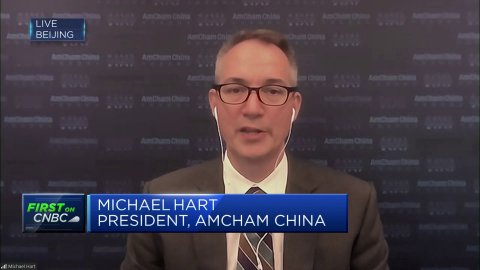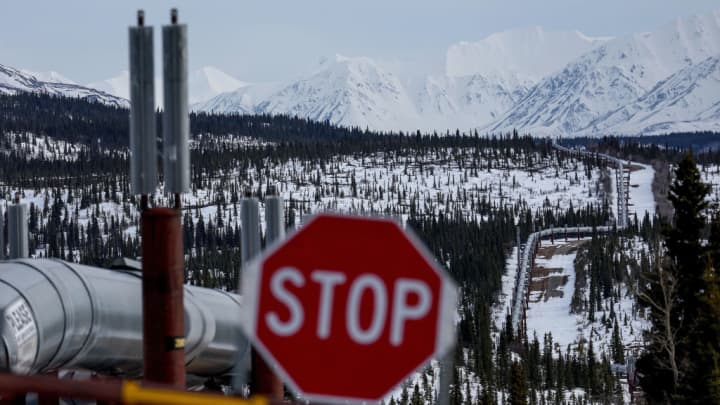
The head of the world's climate science authority says policymakers are at risk of overlooking a multitrillion-dollar time bomb by pushing ahead with fossil fuel production plans, warning that the cost of inaction is growing "every week, every month and every year."
Speaking shortly after being as the new chair of the U.N.'s Intergovernmental Panel on Climate Change, Jim Skea said that a underscored the pressing need to slash greenhouse gas emissions as quickly and as deeply as possible.
"Frankly, we are in a dire state," Skea told CNBC via videoconference. "We've been making projections about the kind of impacts that will occur from climate change and it was always a kind of future-orientated approach."
"But it is happening on our TV screens. You can look out the window, you have to make choices about what to wear or whether to go out at all at the moment. So, we're facing real challenges," he said.
"We predicted it, but I think it is probably happening more quickly and it has surprised everyone I think just the speed at which things have happened."
This sense of shock has been among climate scientists in recent weeks. The planet its hottest day since records began for the third time in just four days at the start of July — a month that has since been as the hottest in history.
Vast parts of Europe, North Africa, the Middle East and Asia have from scorching heat, while South American countries have been by record-breaking temperatures in the middle of winter.
The human-induced climate crisis is more frequent and more intense.
Skea, a professor of sustainable energy at Imperial College London who co-chaired the IPCC's latest round of reports, stressed the importance of acknowledging that "we do have agency" in staving off the worst of what the crisis has in store.
"Just because it's gloomy, don't get paralyzed into a state of inaction because of it," Skea said. His predecessor as IPCC chair, Hoesung Lee, also that the tools and know-how required are readily available to secure a livable future.
The message from the world's leading climate scientists last year was that a substantial reduction in fossil fuel use will be necessary to curb global heating. The burning of fossil fuels such as coal, oil and gas is the crisis.
Indeed, the IPCC that current fossil fuel use was already more than the planet could handle and additional projects were destined to lock in even greater emissions with devastating consequences.
The U.N. climate panel also that fossil fuel investors could be at risk of losing between $1 trillion and $4 trillion if governments act to limit global temperature rise. This so-called "carbon bubble" is as a major risk to investors with a high-exposure to fossil fuels and, should this bubble burst, it is thought the fallout could send across the global economy.
"We are going to see fossil fuels around by the middle of this century still. There will be oil and gas particularly that will still be used," Skea said when asked about the risk to investors if fossil fuel assets abruptly lose value as a result of climate policy.
He highlighted that the IPCC has previously roughly 80% of coal, 50% of gas and 30% of oil reserves cannot be burned if warming is to be capped at 2 degrees Celsius — with significantly more reserves to remain unburned if warming is to be limited to 1.5 degrees Celsius.
In other words, a sizeable chunk of fossil fuels will need to be left in the ground.
Despite this, some of the world's richest nations, such as and , have cited energy security as a reason for investing in additional fossil fuel projects. G7 leaders, too, were in May for endorsing gas investments as "a temporary response" to Russia's full-scale invasion of Ukraine and the resulting energy crisis.
"The simple message is clearly if these decisions are taken now — and they might be taken for legitimate political energy security reasons — it will leave a choice for decision makers in the future as to whether these reserves continue to be exploited or you hit the goals of the Paris Agreement," Skea said.
"It is quite a clear choice," he added. "It is more just deferring decision making rather than doing it. It doesn't matter whether the oil in the ground is proved up or not, it matters whether it is burned and has gone into the atmosphere."
Asked to comment on specific examples of governments pushing ahead with fossil fuel expansion plans, such as the U.K.'s recent to offer hundreds of North Sea oil and gas licenses, and COP28 host the United Arab Emirates' of increasing fossil fuel production and consumption, Skea offered a diplomatic response.
"I am now the chair of a global consensus-driven intergovernmental body, so we don't do commentaries on individual countries, but I have made the general point that if we take these decisions now, it leaves certain difficult decisions for policymakers in the future," he said.
Skea highlighted that the scale of action needed to meet the goals of the landmark Paris Agreement was not incremental. "It is very ambitious transformational action that is needed," he said.
The 2015 Paris Agreement that the long-term objective is to ensure global warming stays "well below" 2 degrees Celsius and to "pursue efforts" to limit the temperature rise to 1.5 degrees Celsius.
The 1.5 degrees Celsius goal is recognized as a crucial global target because beyond this level, so-called become more likely. These are thresholds at which small changes can lead to dramatic shifts in Earth's entire life support system.
"To build the kind of social consensus around these actions, we really need to pay attention to the wider social and economic consequences because … we need to change the way we produce and use energy etcetera. There are all sorts of issues around land use and agriculture that need to be addressed as well," Skea said.
"We need to be acutely aware of these social and economic consequences and not hide them under the carpet. We need to confront them straight on and deal with these issues."

